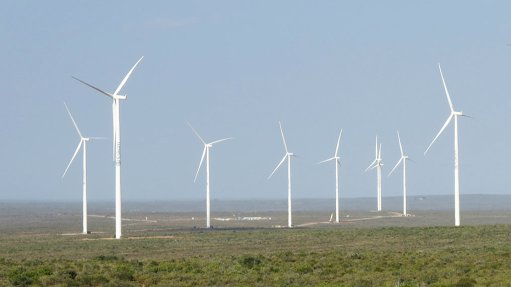Greylisted
It is customary to dedicate this column to the Finance Minister’s Budget speech when it is presented, and this year it was delivered on February 22. It thus speaks volumes when the speech is relegated behind the Financial Action Task Force’s (FATF’s) ‘greylisting’ of South Africa on February 24, and news reports about Eskom published on February 23.
With regard to Eskom, one has to be specific, as the State-owned power utility tends to monopolise daily news headlines. As to which places tops depends on your take on the significance of the Eskom CEO’s ‘voluntary’ early departure.
For once, Eskom places second, and this will result in yet another sequel column, which I fear is becoming far too much of a regular occurrence. In doing so, I can but recite John Cleese’s best line as principal Brian Stimpson in the 1986 movie Clockwise, which epitomises South Africa today: “It’s not the despair: I can cope with the despair. It’s the hope – that’s what’s killing me.”
As for greylisting, should you require a quick refresher on the concept and what it means for South Africa, then the instalment of this column published on July 29, 2022, under the headline ‘Shades of greylisting’ will provide just that. However, should you need a little reminding, let me be clear: ‘greylisting’ is bad. In fact, it is dreadful.
We are all familiar with ‘blacklisting’ – hopefully, only with the word, and not its consequences. Here is the kicker: a country that is ‘greylisted’ can and will (by most accounts) be ‘blacklisted’ internationally.
Interestingly, the Finance Minister’s speech dedicated 206 words to the FATF: “South Africa has been a voluntary member of the FATF since 2003, which sets global standards to combat money laundering and the financing of terrorism across national borders. In 2021, the FATF published its mutual evaluation report, highlighting vulnerabilities in the country’s anti-money laundering system. We have since made substantial progress to address these weaknesses. “Two laws have been enacted to address the technical deficiencies in the legislative framework, namely the General Laws Amendment Act of 2022, and the Protection of Constitutional Democracy Against Terrorist and Related Activities Amendment Act. “The laws address 15 of the 20 legislative deficiencies identified by the FATF. The remaining five deficiencies will be addressed through regulations and practices that do not require legislation. We recognise the need to be more effective in implementing our laws, particularly in fighting organised and sophisticated crimes. Addressing the FATF issues is part of the broader fight against corruption, crime, State capture and the deliberate weakening of the institutions of law and order in our country. “The FATF Plenary will make its decision later this week on whether or not to put South Africa under increased monitoring, otherwise known as greylisting. We should be prepared for that possibility.”
The FATF’s ‘Grey Listing Fact Sheet’, published by the National Treasury on February 24, states: “The most significant implication to a country that is greylisted is the reputational damage to the country, as its effectiveness in combating financial crimes like corruption and money laundering, as well as terror financing, is deemed to be below international standards. “The second and related implication arises from consequential action taken with regard to cross-border transactions, particularly possible action taken by foreign banks that provide correspondent banking services. It should be noted that the FATF does not require enhanced due diligence measures to be applied, but rather that all jurisdictions take account of it in their risk analysis.”
In being placed under increased monitoring, South Africa is joining such illustrious countries such as Albania, Barbados, Burkina Faso, Cambodia, Cayman Islands, the Democratic Republic of Congo, Gibraltar, Haiti, Jamaica, Jordan, Mali, Morocco, Mozambique, Nigeria, Panama, the Philippines, Senegal, South Sudan, Syria, Tanzania, Türkiye, Uganda, the United Arab Emirates, and Yemen.
Article Enquiry
Email Article
Save Article
Feedback
To advertise email advertising@creamermedia.co.za or click here
Announcements
What's On
Subscribe to improve your user experience...
Option 1 (equivalent of R125 a month):
Receive a weekly copy of Creamer Media's Engineering News & Mining Weekly magazine
(print copy for those in South Africa and e-magazine for those outside of South Africa)
Receive daily email newsletters
Access to full search results
Access archive of magazine back copies
Access to Projects in Progress
Access to ONE Research Report of your choice in PDF format
Option 2 (equivalent of R375 a month):
All benefits from Option 1
PLUS
Access to Creamer Media's Research Channel Africa for ALL Research Reports, in PDF format, on various industrial and mining sectors
including Electricity; Water; Energy Transition; Hydrogen; Roads, Rail and Ports; Coal; Gold; Platinum; Battery Metals; etc.
Already a subscriber?
Forgotten your password?
Receive weekly copy of Creamer Media's Engineering News & Mining Weekly magazine (print copy for those in South Africa and e-magazine for those outside of South Africa)
➕
Recieve daily email newsletters
➕
Access to full search results
➕
Access archive of magazine back copies
➕
Access to Projects in Progress
➕
Access to ONE Research Report of your choice in PDF format
RESEARCH CHANNEL AFRICA
R4500 (equivalent of R375 a month)
SUBSCRIBEAll benefits from Option 1
➕
Access to Creamer Media's Research Channel Africa for ALL Research Reports on various industrial and mining sectors, in PDF format, including on:
Electricity
➕
Water
➕
Energy Transition
➕
Hydrogen
➕
Roads, Rail and Ports
➕
Coal
➕
Gold
➕
Platinum
➕
Battery Metals
➕
etc.
Receive all benefits from Option 1 or Option 2 delivered to numerous people at your company
➕
Multiple User names and Passwords for simultaneous log-ins
➕
Intranet integration access to all in your organisation

















